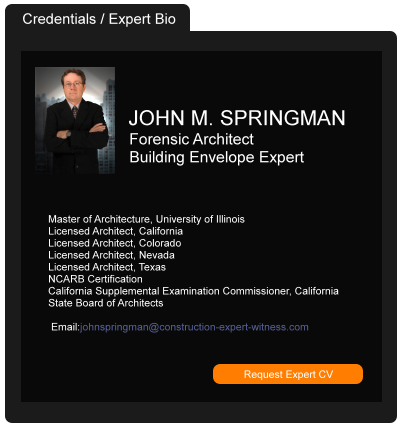Washington Builders Right To Repair Current Law Summary:
Current Law Summary: (SB 5536) The legislature passed a contractor protection bill that reduces contractors' exposure to lawsuits to six years from 12, and gives builders seven "affirmative defenses" to counter defect complaints from homeowners. Claimant must provide notice no later than 45 days before filing action; within 21 days of notice of claim, "construction professional" must serve response; claimant must accept or reject inspection proposal or settlement offer within 30 days; within 14 days following inspection, construction pro must serve written offer to remedy/compromise/settle; claimant can reject all offers; statutes of limitations are tolled until 60 days after period of time during which filing of action is barred under section 3 of the act. This law applies to single-family dwellings and condos.
Building Expert Contractors Licensing
Guidelines Seattle Washington
A license is required for plumbing, and electrical trades. Businesses must register with the Secretary of State.
Association Directory
Local # 4955
335 116th Ave SE
Bellevue, WA 98004
http://www.masterbuildersinfo.com
Seattle Washington Building Expert 10/ 10
Home Builders Association of Kitsap County
Local # 4944
5251 Auto Ctr Way
Bremerton, WA 98312
http://www.kitsaphba.com
Seattle Washington Building Expert 10/ 10
Home Builders Association of Spokane
Local # 4966
5813 E 4th Ave Ste 201
Spokane, WA 99212
http://www.shba.com
Seattle Washington Building Expert 10/ 10
Home Builders Association of North Central
Local # 4957
PO Box 2065
Wenatchee, WA 98801
http://www.nchba.cc
Seattle Washington Building Expert 10/ 10
MBuilders Association of Pierce County
Local # 4977
PO Box 1913 Suite 301
Tacoma, WA 98401
http://www.mbapierce.com
Seattle Washington Building Expert 10/ 10
North Peninsula Builders Association
Local # 4927
PO Box 748
Port Angeles, WA 98362
Seattle Washington Building Expert 10/ 10
Jefferson County Home Builders Association
Local # 4947
PO Box 1399
Port Hadlock, WA 98339
http://www.jeffcohomebuilders.com
Seattle Washington Building Expert 10/ 10
Building Expert News and Information
For Seattle Washington
North Carolina Court Rules In Favor Of All Sums
Affordable Housing, Military Contracts and Mars: 3D Printing Construction Potential Builds
Flint Water Suits Against Engineers Will Go to Trial, Judge Says
Key Amendments to Insurance Claims-Handling Regulations in Puerto Rico
The Power of Team Bonding: Transforming Workplaces for the Better
Surplus Lines Carriers Cannot Compel Arbitration in Louisiana
South Carolina Law Clarifies Statue of Repose
How the Science of Infection Can Make Cities Stronger
Connecticut’s New False Claims Act Increases Risk to Public Construction Participants
Death of Subcontractor’s Unjust Enrichment Claim Against Project Owner
How is Negotiating a Construction Contract Like Buying a Car?
What is a Subordination Agreement?
Use Your Instincts when Negotiating a Construction Contract
N.J. Appellate Court Applies Continuous Trigger Theory in Property Damage Case and Determines “Last Pull” for Coverage
Assert a Party’s Noncompliance of Conditions Precedent with Particularity
Nine Haight Attorneys Selected for Best Lawyers®: Ones to Watch 2021
Is an Initial Decision Maker, Project Neutral, or Dispute Resolution Board Right for You?
Faulty Workmanship an Occurrence in Iowa – as Long as Other Property Damage is Involved
ASCE Statement on Calls to Suspend the Federal Gas Tax
Floating Crane on Job in NYC's East River Has a Storied Past of Cold War Intrigue
Illinois Supreme Court Rules Labor Costs Not Depreciated to Determine Actual Cash Value
MBS’s $500 Billion Desert Dream Just Keeps Getting Weirder
Los Angeles Wildfires Will Cause Significant Insured Losses, Ranking Amongst the Most Destructive in California's History
Are Contracting Parties Treated the Same When it Comes to Notice Obligations?
Coverage for Faulty Workmanship Found In South Dakota
GOP, States, Industry Challenge EPA Project Water Impact Rule
Pending Sales of Existing Homes in U.S. Decline for Eighth Month
Nation’s Top Court Limits EPA's Authority in Clean Air Case
More Construction Defects for San Francisco’s Eastern Bay Bridge Expansion
William Lyon Homes Unites with Polygon Northwest Company
Appeals Court Explains Punitive Damages Awards For Extreme Reprehensibility Or Unusually Small, Hard-To-Detect Or Hard-To-Measure Compensatory Damages
Precast Standards' Work Under Way as Brittle Fracture Warnings Aired
Following California Law, Federal Court Adopts Horizontal Allocation For Asbestos Coverage
Congratulations to BWB&O’s Newport Beach Team for Prevailing on a Highly Contested Motion to Quash!
Around the State
Homeowner may pursue negligence claim for construction defect, Oregon Supreme Court holds
Order for Appraisal Affirmed After Insureds Comply with Post-Loss Obligations
Constructive Notice Established as Obstacle to Relation Back Doctrine
New York Condominium Association Files Construction Defect Suit
“Time Is Money!” In Construction and This Is Why There Is a Liquidated Damages Provision
Court Orders City to Pay for Sewer Backups
Illinois Federal Court Determines if Damages Are Too Remote
Lauren Motola-Davis Honored By Providence Business News as a 2021 Leader & Achiever
Accounting for Payments on Projects Became Even More Crucial This Year
Meet Orange County Bar Associations 2024 Leaders
Nevada Budget Remains at Impasse over Construction Defect Law
Condo Building Hits Highest Share of Canada Market Since 1971
“Families First Coronavirus Response Act”: Emergency Paid Leave for Construction Employers with Fewer Than 500 Employees
Tesla Finishes First Solar Roofs—Including Elon's House
Newmeyer & Dillion Announces Three New Partners


































































